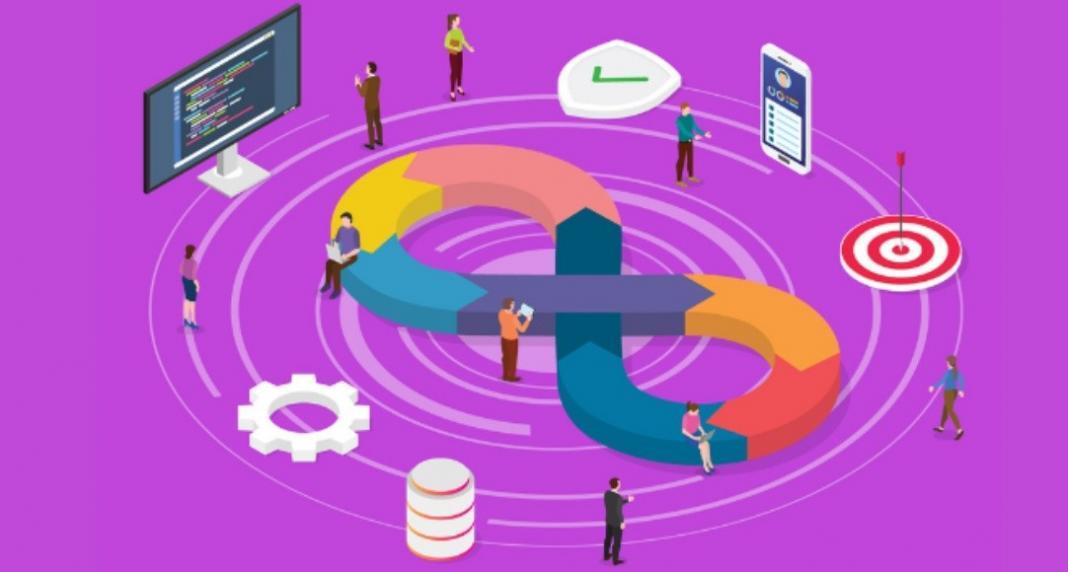What DevOps is?
DevOps is more about culture than about technology. DevOps being a cultural change permits break down of the barrier present between the operations and the development team. DevOps involves transparency, interdisciplinary teamwork and open communication. DevOps breaks down silos as well as opens up room for discussions and collaborations. When you are adopting the philosophy of DevOps, it means that a single team is going to be accountable for a product throughout its lifecycle.
Despite having brightest and the best engineers, your organization can fail if you are not having the right mindset. DevOps cannot be defined as a technical skill’s set, rather it is a mindset. DevOps demands for a determined mindset for improving communication between the team members so as to increase collaboration and reach the real solution.
In this technological world, whether it is about seminars or technical conferences, DevOps mindset is very much common in the IT sector. The six crucial values for the DevOps mindset mentioned below will help you in increasing effective collaboration between two siloed tea
1. Stakeholder’s feedback is extremely important
How can you figure out that your stakeholders are satisfied with your product? You will need constant feedback from them so that you can steer and implement better decisions and thrive in your field. You will have to understand the feedback of your stakeholders and implement alterations that your technologies and processes can adapt easily so that you can delight your stakeholders and make your company flourish.
Many a times, you bring wrong changes on the basis of incorrect data that can affect your business. Thus, stakeholder’s feedback derived from reliable sources is a crucial value that you can never ignore. Focus on the feedback of your stakeholders and bring changes instead of simply changing just because you want some change.
2. Empathy
Empathy means you should identify the feelings and requests of your customers so that you can build a strong connection with them. Empathy is not limited to dealing with your customers, but also you need to show empathy to your co-workers. If you are not connected with your customers and your co-workers, you can never work as a team together and understand the requirements of your customers.
The biggest advantage of empathy is generating a more comprehensive community. When you are connected to your co-workers and your customers, you can make them feel that they too belong to the company. When customers have a feeling that their requirements are understood and changes are made in the product as per their requirements, they will promote your products and services
3. Improve continually
You will always want that your services and products delight your customers continuously; hence you need to upgrade continually. Improvement is not just limited to quality, but it also includes availability, relevance, costs, and various other factors and goals. It is good to implement common framework or create repeatable processes as they can enhance governance as well as enable you to solve several issues, but you should not consider them as your end goal. When looking for how improvement can be implemented, you can adjust and harmonize the pre-existing processes and frameworks with apt tools and technologies. You must attempt to improve and apply innovative tactics instead of working with those repeatable frameworks and processes.
4. Don’t add silos for breaking down existing silos
DevOps and silos are never compatible to each other. In many cases it has been seen that an expert is brought by the IT directors for implementing DevOps and agile. What is the result? One more problem is being added to the existing ones by these experts, which means that one more silo added to the IT department and the business is riddled with too many silos.
In both DevOps and agile, teamwork is very essential, hence if you are appointing an expert to break down silos, this means you are not working as a team and you are going against the DevOps title. Try to motivate and break down silos collaboratively rather than calling an expert and creating new silos.
5. Communication
In this era of tough competition, for staying in business, you should know what your customers think about your company and for what they are looking forward from you. To know their feelings, you need to communicate with them. Without communication, it is very hard to collaborate. Be it through email, hallway communication or Slack, the communication medium doesn’t matter. What actually matters is that a communication should be there. Communication means listening as well as talking, hence you should also listen to your customers and co-workers.
6. Inspire adoption and learning through enthusiasm
Not every person has the zeal to learn new things and adapt to new environment. Hence, you will have to motivate your co-workers to learn new things and promote them to become a part of the changed culture. A natural mechanism is provided and new information is passed on to people when they adapt to the new culture and evolve within the learning culture. Learning styles, methods, processes and attitudes continually evolve; hence you can perk up as per the changes. After inspiring the co-workers, you can motivate them to share the new improved and learned information with their colleagues.
Learning never happens automatically and can never be provided by automation and tools alone; it demands for evaluation, effort, awareness, discipline, and most importantly communication. Go through your processes, tool strategies, implementation work, and automation, make them transparent, and team up with your co-workers for improvement and reuse. Aim at promoting learning culture via flexible quality deliverables and not simply through automation and tools.
Summing Up
DevOps isn’t a technology that you use or something that you buy, neither it can be declared or bolted; it’s about the culture and the people and you can achieve it only with disciple and a lot of effort. Though DevOps mindset cannot be adopted so fast and easily, but you must have DevOps mindset, as it is comparatively more vital than executing continuous automating processes or integration strategies.
Related posts:







